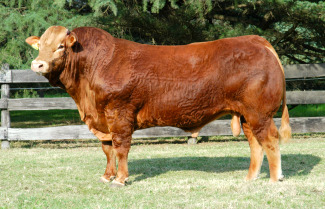Interbreedal insemination reduces abortions in dairy cows

Neosporosis is a disease which affects some mammal species, but when it comes to cattle, the disease also generates important economic losses by causing an increase in abortion rates. Present research has concluded that insemination using semen from specific bull breeds drastically reduces the risk of Nespora-associated abortions in dairy cows. Thus, interbreedal insemination can be an effective ally against neosporosis, especially when using semen from Limousin bulls.
Neospora caninum is an obligate, intracellular, protozoan parasite that can infect domestic and wild canids, ruminants and horses causing abortion and stillbirth especially in dairy cattle (Dubey et al., 2006).
Previous studies demonstrated that the use of beef bull semen reduces the risk of abortion in N. caninum-seropositive dairy cows. Insemination of seropositive dairy cows with semen from beef cattle has been observed to reduce the infection prevalence (hybrid calves are not used as replacements) and dramatically reduce abortions (López-Gatius et al., 2005a,b). These results reinforce the idea that differences exist between breeds of beef cattle in terms of their susceptibility to both N. caninum infection and abortion. Another factor that has been noted to affect the N. caninum abortion risk is the antibody titre of the N. caninum-infected dam. The objective of the present study was determine whether different crossbreed pregnancies, those derived from Limousin, Charolais, Piedmontese or Belgian Blue (BB) semen, carry different risks of abortion in Neospora-infected dairy cows. The effects of possible interactions between maternal levels of N. caninum antibodies and the different breed crosses were also evaluated.
The study was performed on five commercial Holstein-Friesian dairy herds in Northeast Spain with previously confirmed diagnoses of N. caninum infection in aborted foetuses. A total of 1115 pregnancies were included, 482 pregnancies recorded after artificial insemination (AI) with semen from 18 Holstein-Friesian (HF) bulls and 633 pregnancies recorded after AI with semen from 27 beef bulls (304 inseminations using semen from Limousin bulls, 191 from Belgian Blue bulls, 89 from Piedmontese bulls and 49 from Charolais bulls). Abortion rates were 32.2% (155/482) and 15.2% (96/633) for seropositive cows inseminated with HF and beef breed semen, respectively. Logistic regression analysis revealed that herd and the interaction between maternal N. caninum antibody titre and the different crossbreeds as significant factors affecting the abortion rate. Lowest abortion rates, similar to that shown by seronegative animals in the analysed herds (3.2%, 239/7432), were observed in dams AI using Limousin semen that had low (<30 relative index (RI) units) N. caninum antibody titres (2.1% abortion, 3/145) and these cows were used as reference. Compared to cows used as reference, cows with low N. caninum antibody titres (<30 RI units) showed a similar risk of abortion when inseminated with Piedmontese or Charolais bull semen, but higher risk of abortion when inseminated with HF (17.9 times) or Belgian Blue (7.2 times) bull semen. All cows with high N. caninum antibody titres (>=30 RI units) had a higher risk of abortion, ranging from 8.9 times (cows inseminated with Limousin semen) to 37.8 times (cows inseminated with Piedmontese semen), compared to the cows used as reference.
As conclusions:
-The study showed that different crossbreed pregnancies carried different abortion risks in Neospora-infected dairy cows.
-The use of beef bull semen dramatically reduced the risk of abortion in dairy cows, especially if Limousin breed semen was used.
-This reduction was found to be dependent on the N. caninum antibody titre such that the lowest incidence of abortions was recorded in Limousin semen inseminated cows with low antibody titres.
-Insemination of Neospora-seropositive cows with beef bull semen could both reduce the risk of abortion and avoid breeding replacements for infected cattle.
References
"Effects of crossbreed pregnancies on the abortion risk of Neospora caninum-infected dairy cows". Almería, S; López-Gatius, F; García-Ispierto, I; Nogareda, C; Bech-Sabat, G; Serrano, B; Santolaria, P; Yániz, JL. VETERINARY PARASITOLOGY, 163 (4): 323-329 AUG 26 2009.


